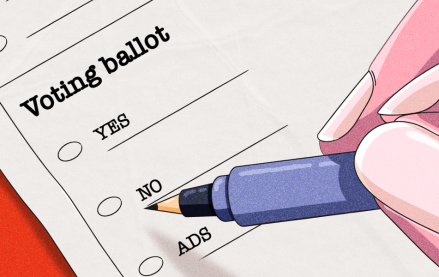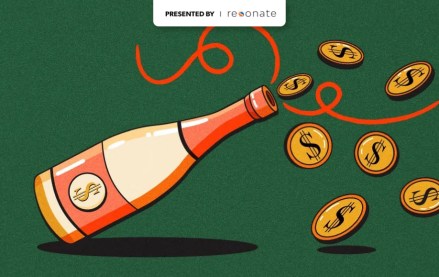German publishers are skipping Facebook’s fake-news initiative
After Facebook announced the first phase of a fact-checking initiative last month with partner Correctiv, a startup with 20 editorial staff manually checking false claims, the social network has been seeking out more media partners abroad. The timing is no coincidence: With elections looming in France, Holland and Germany next year, the specter of fake news, propaganda and nationalist hate speech looms large.
But German publishers are sitting it out.
“Almost all publishers have decided not to move,” said one publishing executive, speaking anonymously, as conversations with Facebook are changing regularly. “They have said, ‘I don’t want to be in the first wave; maybe I will see who partners first and then join later.’”
According to sources in Germany, Facebook has a resource problem: So far the social network has just one manager in Germany for all of its publishing partners. Details on the Facebook’s fact-checking process have been scant, sources said. Facebook has sent one screenshot of how to use a fact-checking tool to publishing partners, they added.
“When you ask five questions, Facebook has the answer to none of them,” said one publishing exec. “The initiative appears to be set up by amateurs. It’s like communicating with a black hole. They are completely lost.” A Facebook spokesperson has responded saying: “We are in talks with a number of interested media partners and are answering their questions. We hope to start our test for Germany soon”.
An unavoidable reason for this lack of detail is distance. Facebook has made noise about being concerned with fake news. But German publishers complain that on the product side, there’s no one from Facebook in Europe they can talk to. Publishers want to see Facebook bridge this distance this by putting more effort into its regional presence by hosting more events and showing it listens to publishers.
There is a slight indication Facebook is willing to offer more resource and commitment to publishers: For Facebook’s Journalism Project, which launched in January, it has sent emissaries to discuss the project. “If they don’t take this seriously, I don’t know what they will,” said the anonymous executive. “We were very clear, direct and quite critical.”
Indeed, German media companies are getting vocal. Last week, German publisher Gruner + Jahr published a statement saying it expects Facebook to do much more in forging collaboration. “This includes the fair sharing of revenues with content providers, as well as the recognition of shared standards in measuring the effectiveness of advertising,” it reads. The company also demanded transparency on how content is favored. On this front, Gruner + Jahr has said it is in “friendly discussions” with Facebook.
One German publisher showing an inclination to cooperate with Facebook is Zeit Online. “We’re evaluating a potential participation in the fact checking initiative of Facebook,” Zeit wrote in a statement. Although Zeit would stop participating if the drain on resources became too much, and it would not accept any financial compensation from Facebook.
For traditional media houses that pride themselves on journalistic ethics, the idea of identifying fake stories for Facebook smarts a bit. “I’m speechless,” said Axel Springer chief, Mathias Döpfner. “We are not the correction unit for Facebook,” said Karola Wille, chairman of ARD, Germany’s organization of public broadcasters.
More in Media

Publishers revamp their newsletter offerings to engage audiences amid threat of AI and declining referral traffic
Publishers like Axios, Eater, the Guardian, theSkimm and Snopes are either growing or revamping their newsletter offerings to engage audiences as a wave of generative AI advancements increases the need for original content and referral traffic declines push publishers to find alternative ways to reach readers.

The Guardian US is starting its pursuit of political ad dollars
The Guardian US is entering the race for political ad dollars.

How much is Possible’s future in Michael Kassan’s hands?
Some people in the know at Possible said they see the conference taking a bite out of Cannes’ attendance, most acutely by U.S.-based marketers who could save money by staying on this side of the Atlantic.








